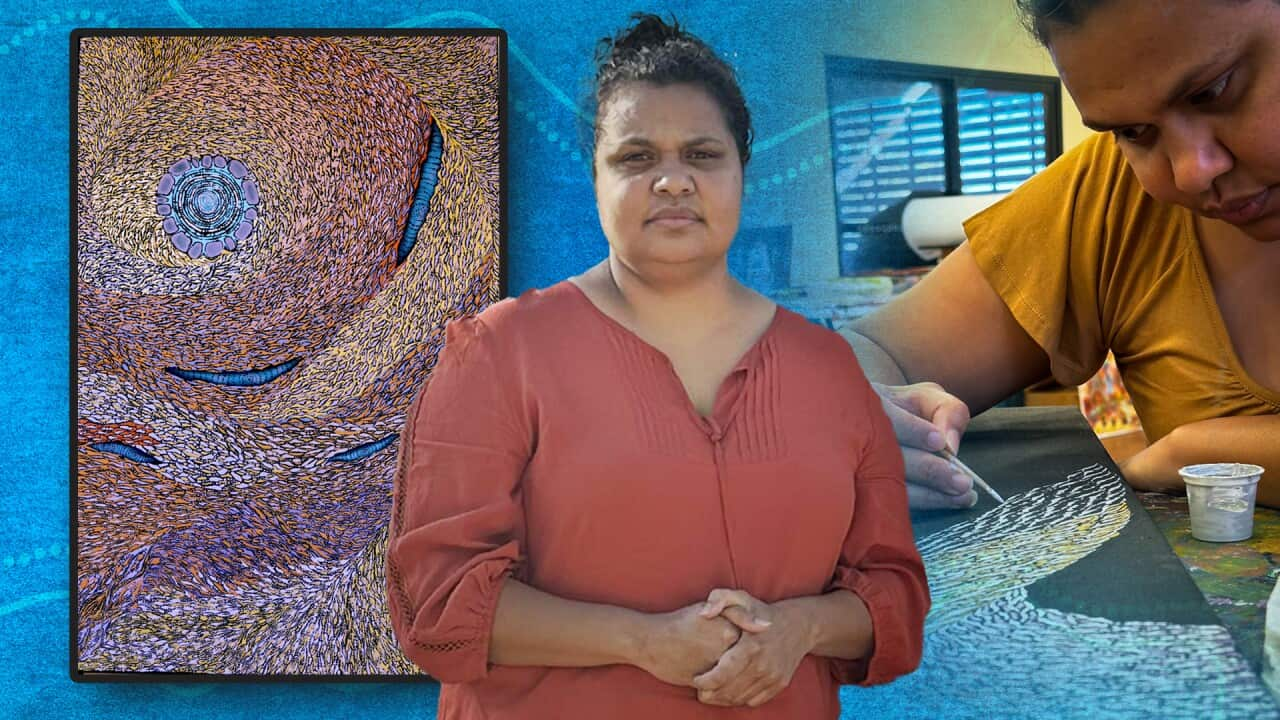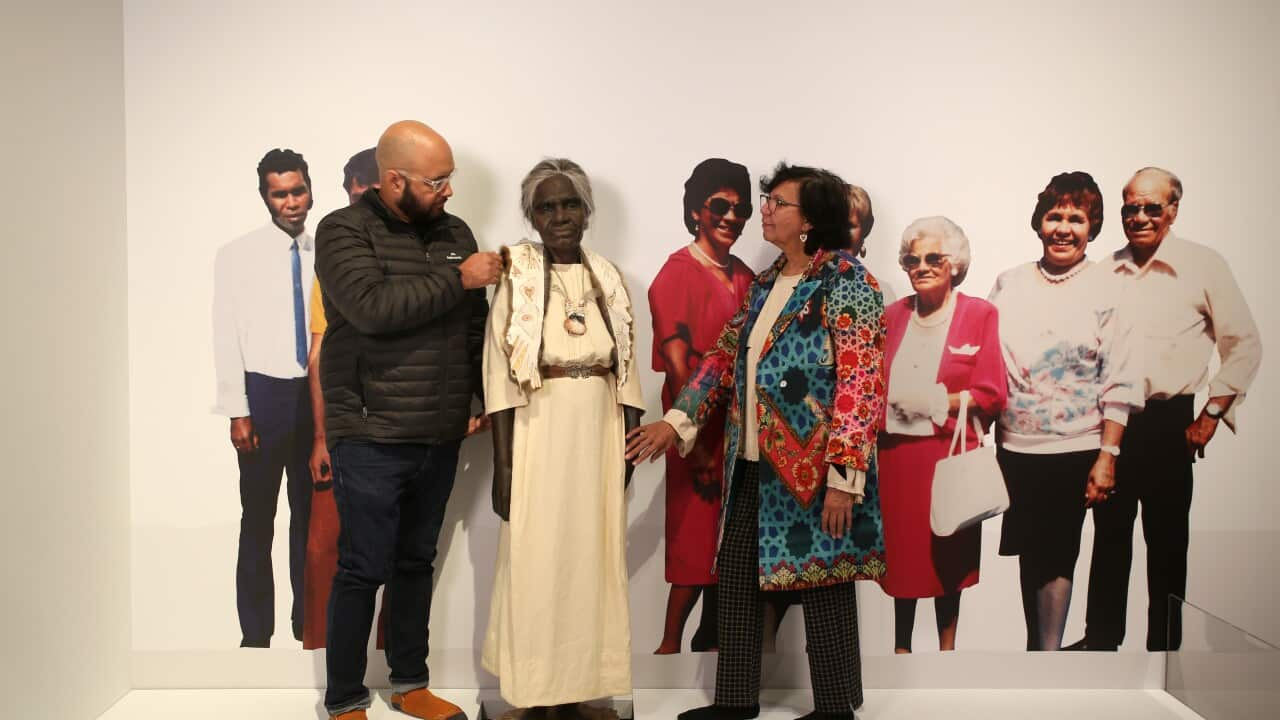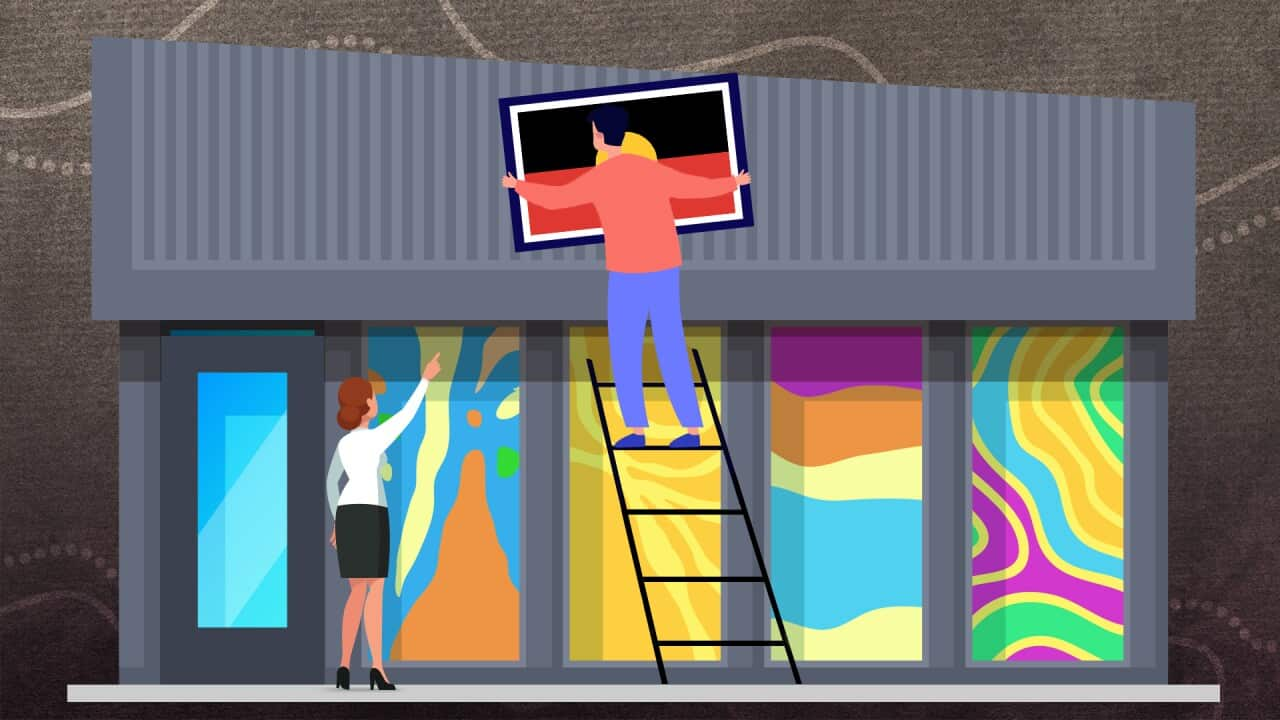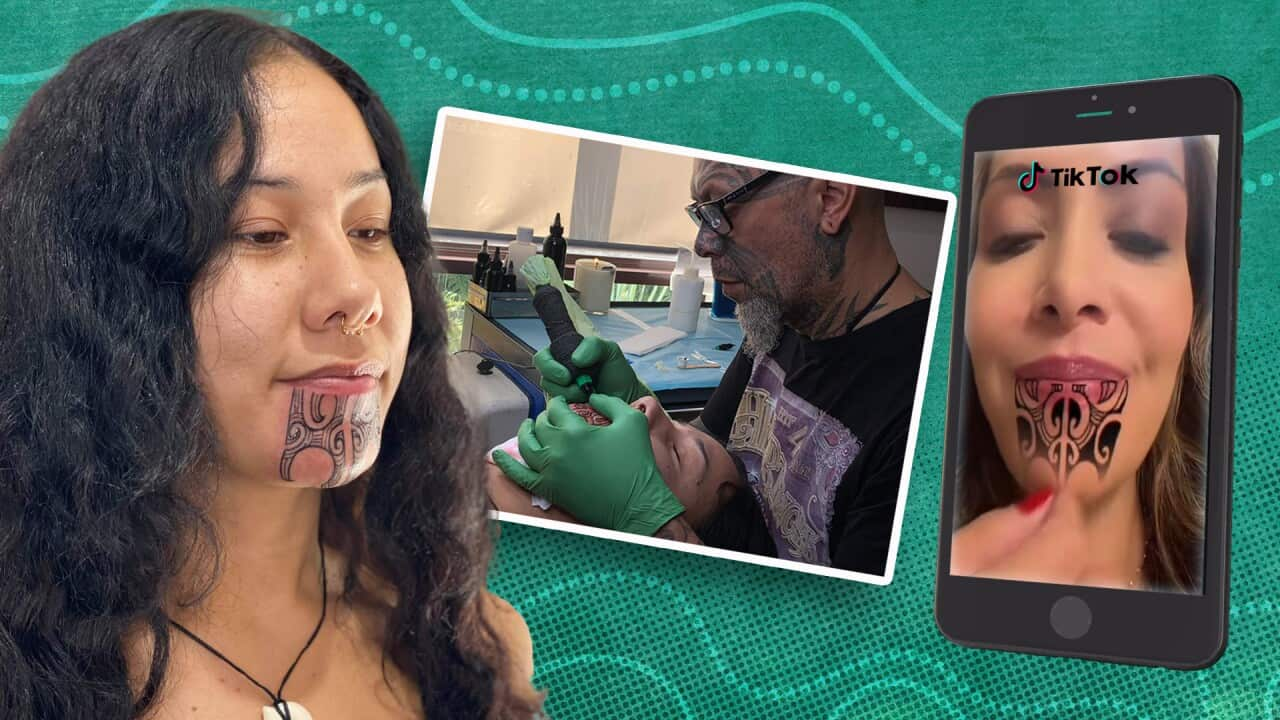Warning: this story contains distressing themes, including domestic violence.
When Deirdre 'Dilly' Butters was a young girl, she'd visit Wurreranginy Frog Hollow, spending her time painting rocks she'd collected.
At school, the Walmajarri Kija youth would fill the borders of her workbooks with drawings of flowers from her Country, finishing her work early to dedicate time to art.
Now, at 35, Dilly has become an award-winning artist, taking home the Kimberley Art prize for a painting of her Country.
The Halls Creek local has returned to where it all started after a few years of living away in the Pilbara.
"We just moved back last year, and I wanted to do artwork that was inspired by my Country, my homeland. I grew up around here, but then it's also putting my own personal spin on it," she said.
The painting that claimed the title is called 'Desert Aurora' and depicts dusk along the highway.
"Coming back I just want to paint my own Country. That is what the painting represents, where the men go shooting, like hunting, there's this big open grass plain that open up across the highways," Dilly said.
"Before night, the skies turn pink and purple. It's so beautiful, it's so different to anything I've ever seen anywhere else too."

Dilly's painting, Desert Aurora, which won the Kimberley Art Prize. Source: Supplied
"My paintings are a bit like life. It looks like one way when you see it from a distance, you get that whole bigger picture view," she said.
"But then when you get close, you notice all the little details and parts you didn't see before. You have to get close to it to see all those special things.
"That's sort of like how I see myself, and my life. We put on a different character or persona, a way we want other people to see us. But when you get close things are different.
"My paintings are my therapy, they let me express myself. Painting really takes you away, it gives you that space to think through things in your head."
Art as therapy
For Dilly, painting has been a way to heal, to come back to herself in hard times.
"I've had my own fair share of dealing with really full-on things in my personal life, things that aren't fair or things most people shouldn't have to go through, but that's life I guess. Painting is one of my ways of dealing with it," she said.
The young mother of five experienced domestic violence from a former partner, and suffered with mental health issues.
"It was really hard, I stopped painting and doing art for a really long time. When you're in a domestic violence relationship they put you down, they make you feel like you're not good enough or you can't do anything that's worth showing," she said.
"At the same time I had really bad postnatal depression, I was really depressed. I went to one of them counsellors, who said maybe I should start doing art again because I used to love it."
But returning to art wasn't easy at first.
"It was like mixed emotions, I was so excited to be doing something for myself. But at the same time, I didn't want to excel," she said.
"Being in that relationship, I didn't want to bring any attention to myself. I was just focused on having a happy family, trying hard for that because family really meant a lot to me.
"It was the hardest most heartbreaking thing. No one ever wants to make that choice. It was a hard decision but I know it was right."

Dilly creating the artwork that took out the prestigious prize. Source: Supplied / Deirdre Butters
Giving back to community
Looking back at her art, Dilly can pinpoint when she started to feel safe again. Her paintings went from dark colours to bright, bold and bubbly again.
"I just kept painting, it's been like therapy. I use texture and colour and it helps me get out of this world, it stops me from overthinking," she said.
Now, at 35, Dilly has a strong foundation. She has a beautiful family, with a new partner and five healthy children, a job working at the Yarliyil Arts and will soon be launching her own business.
Dilly also intends to put the $10,000 prize money on buying a home for her family.
"My new partner, he is completely different. He has a confidence that has helped me grow, it helped me move out of the Pilbara I left my job and everything there," she said.
"He's the kindest person, his confidence just leaks into you. I'm building my own brand now, I'm starting my own business. I'm putting my artwork on swimwear, then activewear.
"I have 50 per cent of the clothing already made. I'm hoping in September I can launch the brand."
Much like herself, Dilly's children are budding artists. Her son already winning prizes for his art of animals.
She's always encouraged her bubs to create, buying them all their own art diaries.
"I teach my kids about art. I give them all art diaries, and say I won't look in them. That's theirs, I respect their privacy, whatever they want to write or draw, that's theirs," she said.
"That's the thing I love about painting as well. We get so caught up in what is right and wrong, but in art, nobody can tell you that this is what it should or shouldn't look like. It's yours, your art and that's fine."
Despite the challenges and trauma Dilly endured, she remains determined to keep a positive perspective on it all, remaining grateful for her art, her home and her children and future.
"I want people to know that you can get through very hard things. You have to find the good things, and you have to fill your cup with them. Eventually, the cup will be overflowing with blessings."
If this story has raised issues for you, you can call 13YARN (13 92 76), Aboriginal Counselling Services 0410 539 905, Lifeline 13 11 14, beyondblue 1300 22 4636 or 1800 RESPECT (1800 737 732).















